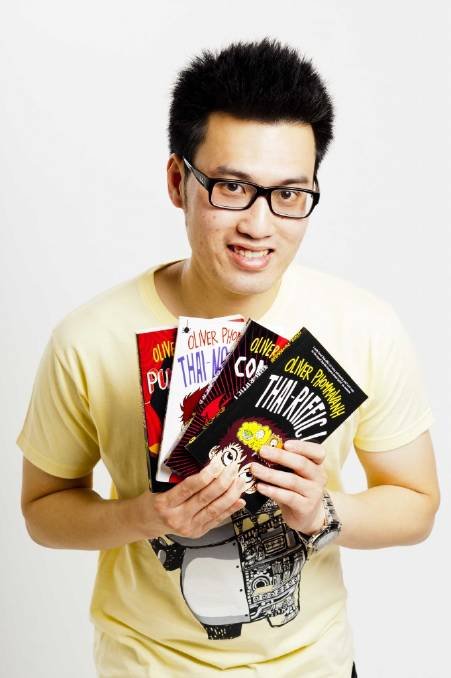Don't panic! You don't have to stop using social media to raise literate children
If you're a parent, you've probably been told that your child is a 'digital native'. This means that they are comfortable with technology and can use it to their advantage. Many parents see this as a negative thing, but we see it as a goldmine of ideas! Children are constantly coming up with new and interesting ideas, and we can learn a lot from them. In this blog post, we will discuss how to turn your child's screen addiction into inspiration for short story writing!
It's no secret that social media can be a major time suck. But while you're scrolling through your feed, panicking about the amount of time your kids are spending on screens, it's important to remember that there are some major benefits to social media usage - especially when it comes to creativity and education.
Many children have built up a vast store of creative content on social media, which can be easily repurposed into traditional forms like short stories, plays, poetry, and screenplays. So rather than seeing social media as a time-waster, why not tap into this valuable resource for some Short Story Competition inspiration?
Deakin University senior lecturer in curriculum Dr Lucinda McKnight has called children's digital content a "massive goldmine" of ideas, and we couldn't agree more. So next time you're feeling creatively stumped, remember that your kids' favourite influencer might just be sitting on a treasure trove of Short Story Competition gold.
For younger users, parental controls and supervision are critical to managing risk. Tying social media use with a constructive experience may be a fantastic opportunity to collaborate, learn, and produce something amusing together with your mother and father.
McKnight added that whether you're using it for entertaining or educational reasons if your content is successful, many people will see it and engage with it. And she reminded budding authors that anything you create on social media is "a kind of writing that (you) can use for inspiration for other kinds of writing."
“They're interested in what they enjoy, and they're collecting quirky things that pique their interest," she said. “Whether it's gorgeous sunsets or amusing events from their lives, they're photographing them ... creating montages, compiling lists of ideal jobs or building the world's tallest buildings.”
“Everything they're doing is open to switching around in a creative manner: what are the strange videos that cats would make of humans?”
Filters and genre tags allow you to narrow down your hero or villain pool, as well as add detail to your characters by allowing them to define themselves via their emojis. You may even change the colour of each typeface for a unique look!
“It might be a parent or an older individual who picks all the incorrect emojis and creates it into a hilarious piece of writing like that,” Dr McKnight added.
Don't Follow Vee, a young protagonist's book by best-selling children's author and comedian Oliver Phommavanh, has 100,000 followers monitoring her mom's Instagram account. When Vee attempts to sabotage* her profile, the fun really begins.
Who is Oliver Phommavanh?
Oliver Phommavanh is quite versatile. He's worked as a teacher, given lectures at writing festivals throughout Australia, performed as a stand-up comedian on national TV, started his own YouTube channel and published twelve children's books in his varied – but never dull – career.
His newest book, What About Thao? , is a comical and heartfelt story about two boys in a parallel arrival narrative who begin at a new school in an Australian rural town. Though Thao was born and reared in Australia, the transition from the city to the countryside carries significance. On the other hand, Kadir comes from a different nation entirely. Nonetheless, he feels an affinity with Thao and begins to cultivate a lifelong friendship.
Oliver Phommavanh*
“It's our responsibility to get our characters into uncomfortable, embarrassing, squirmy, cringe-inducing situations,” Phommavanh said.
“We’re a TV show that's all about trying to get you in trouble, so it's very easy for us to get you into trouble on social media,” he said. “There are infinite ways to say, ‘How can we get the character in difficulty? How can we make them worse off?’ There is no limit to what goes wrong on social media, and it gives us endless possibilities.”
“The expert” has grown in popularity, particularly among digital subcultures,” he added. “Meet these people who adore sneakers and listen to their stories,” Phommavanh said.
“Maybe it's their first pair... Maybe they love a particular basketball player or musician and want to wear their sneakers - there's always some kind of link between things.”
TikTok, which allows users to make short films and share them on the platform for others to view, is popular among Scarlett Bullock, 11, who says she enjoys the draft feature because it allows her to save material that she would not be able to release but may "possibly develop." The account is run by Camilla, and she has complete control over the preferences.
“They're like memories to me,” said a year 6 Manly Village Public School student. “I can recall videos from when I was in third grade and find them hilarious.”
Scarlett's latest success, TikTok, has over a billion active monthly users. The platform is one of her major sources of inspiration, along with books.
“There are a lot of other people with their own ideas,” she continued. “You're probably going to find something that catches your attention and motivates you to create anything. There's bound to be something that attracts your interest and encourages you write or create anything.”
Scarlett is a lover of thrillers and mysteries, and these are also the types of stories she enjoys writing - in her words, "without any technological bells or whistles."
“I grab my little diary and notepad and start jotting down ideas on the notepad while I'm writing the story,” she continued.
Have time with your parents to create the stories
Ask your parents and instructors for assistance in maximizing the value of your social media content by demonstrating how it can be used in other formats. Here are Dr McKnight's top recommendations to get you started.
Because writing is social, consider who you're writing for and what effect you want to have.
Begin by doing what you enjoy.
Consider what makes people tick.
Be bold and try out new concepts.
Make sure you have a simple and effective method for recalling all of your wonderful ideas.
To reach various audiences, layer the narrative across platforms.
Try telling a narrative using a sequence structure.
Share your work securely and get feedback from the community.
It's a win-win situation since you'll be able to enjoy yourself.
The insatiable appetite for fascinating content on the internet will lead to the creation of new job opportunities, so try your hand at user experience writing, virtual reality scriptwriting, rolling news blogs, podcasts...
There's plenty more where they came from.With a bit of ingenuity, you can turn your screen addiction into a goldmine. So what are you waiting for? Get writing!




